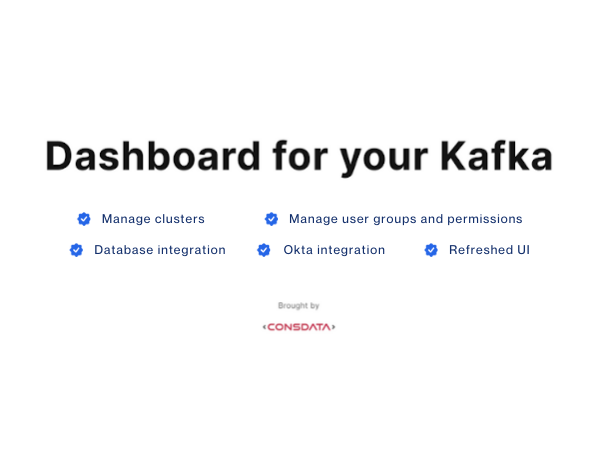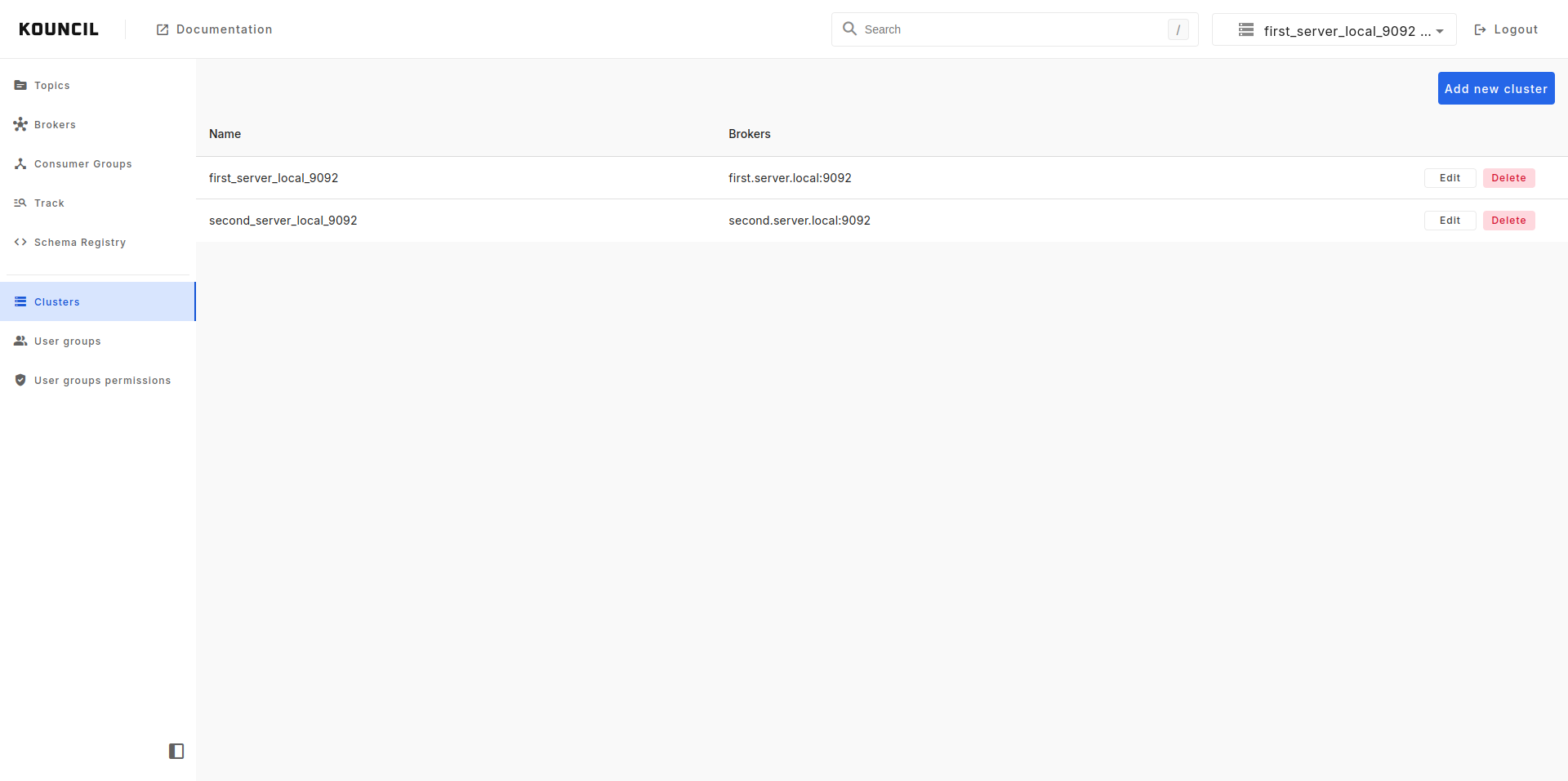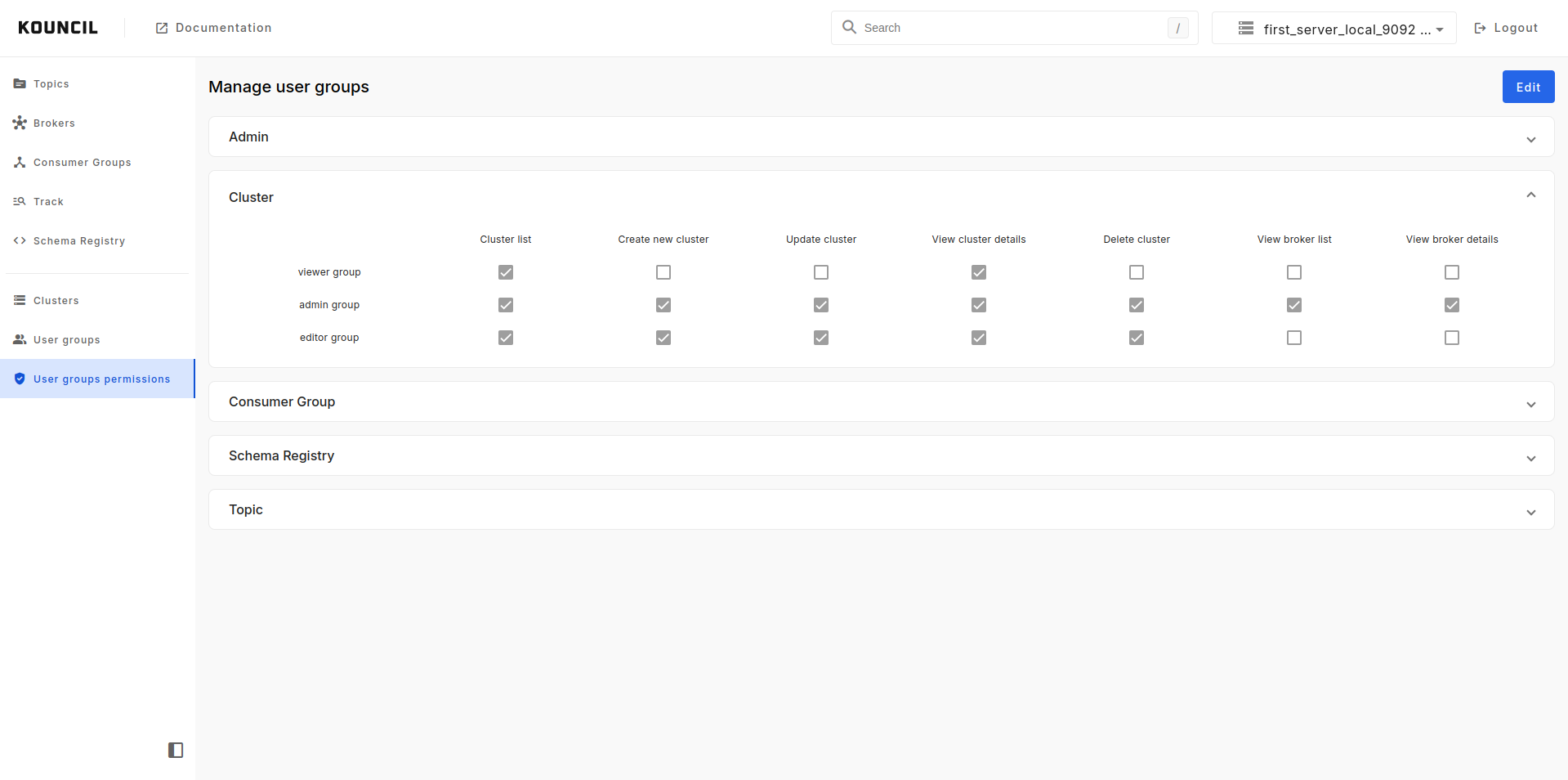Kouncil 1.9

We have added several new features in the latest version of Kouncil 1.9:
- database support
- Kafka cluster management
- user group and authorization management
- support for SSO login using Okta
- UI consistency across the application
Database
The new version of Kouncil requires a database connection. The supported databases include:
- PostgreSQL
- H2
Instructions on how to configure the database are available in our documentation [https://docs.kouncil.io/getting-started/configuration/database].
If no configuration is provided, the H2 base will be used by default.
Cluster management
Kouncil 1.9 introduces the possibility to manage (add, edit, and delete) Kafka clusters in the UI.
In the default configuration, this functionality is accessible to users from groups assigned to the
following roles: kouncil.authorization.role-admin and kouncil.authorization.role-editor.
 A screen with a list of clusters
A screen with a list of clusters
Managing user groups and permissions
In version 1.9, user groups and permissions can also be managed from the UI.
In the default configuration, users belonging to groups assigned to the administrator role
kouncil.authorization.role-admin may manage groups and permissions.
 A screen with a list of permissions to the functions in the system
A screen with a list of permissions to the functions in the system
SSO login using Okta
In an effort to expand the available ways of logging into Kouncil, we have added the possibility of integrating with Okta. A detailed configuration description can be found at this link.
Miscellaneous
We have refreshed and unified the UI of the application. As a result, Kouncil is now more user-friendly.
To see the full range of Kouncil’s capabilities, download the app from our GitHub.
We also encourage you to test the application and submit comments via the contact form or on our GitHub.
Translation by Justyna Wiatrzyk-Guzik
